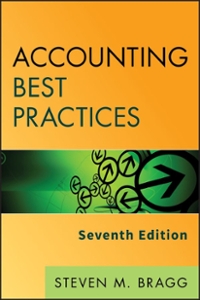I am attaching question 1 of my study guide. I filled in the information that is needed from the book to answer some of the questions.
FIN 321-Midterm Exam Review - Question 1 Consider the valuation of Nike given in Example 10.1, in Chapter 10 a. Suppose you believe Nike's initial revenue growth rate will be between 7% and 11% (with growth always slowing linearly to 5% by year 2015). What range of share prices for Nike stock is consistent with these forecasts? b. Suppose you believe Nike's initial revenue EBIT margin will be between 9% and 11% of sales. What range of share prices for Nike is consistent with these forecasts? c. Suppose you believe Nike's weighted average cost of capital is between 9.5% and 12%. What range of share prices for Nike stock is consistent with these forecasts? Ex. 10.1 from Ch. 10 of book- Valuing Nike, Inc., Stock using free cash flow. Recall our example of Nike, Inc. in Ch. 7. Nike had sales of $19.2 billion in 2009. Suppose you expect sales to grow at a rate of 10% in 2010, but then slow by 1% per year to the long-run growth rate that is characterised of the apparel industry 5%by 2015.Based on Nike's past profitability and investment needs, you expect EBIT to be 10% of sales, increase in nert working capital requirements to be 10% of any increase in sales, and capital expenditures to equal depreciation expenses. If Nike has $2.3 billion in cash, $32 million in debt, 486 million shares outstanding, a tax rate of 24%, and a weighted average cost of capital of 10%, what is your estimate of the value of Nike's stock in early 2010? Nike Cost of Capital Year FCF Forecast ($millions) 1 Sales 2 growth vs. prior year 3 EBIT 4 Less: Income Tax 5 Plus: Depreciation 6 Less: Capital Expenditures 7 Less: Increase in NWC 8 Free Cash Flow 9 Terminal Value 10 PV of Free Cash Flows 11 Value of Cash 12 Value of Debt 13 Number of Shares 14 Share price 2009 2010 2011 2012 19,200.00 10.00% of sales 24.00% of EBIT 10.00% of sales a. If Initial Revenue Growth Rate can vary between 7 and 11%, the stock price can vary between and b. If Initial Revenue EBIT Margin can vary between 9 and 11%, the stock price can vary between and c. If Weighted Average Cost of Capital can vary between 9.5 and 12%, stock price can vary between d. Suppose that in January 2006,Nike had EPS of $3.51 and a book value of equity of $18.92 per share. and EPS Book value of equity Using the average P/E multiple in Table 10.1, estimate Nike's a. share price. Price per share What range of share prices do you estimate based on the highest and lowest P/E multiples in Table b. 10.1? Range based on highest to lowest High Low c. Using the average price to book value multiple in Table 10.1, estimate Nike's share price. Price per share What range of share prices do you estimate based on the highest and lowest price to book value d. multiples in Table 10.1? Range based on highest to lowest High Low Suppose that in May 2010, Nike had sales of $19,176 million, EBITDA of $2,809 million, excess cash of $3,500 million, $437 million of debt, and 485.7 million shares outstanding. Sales EBITDA Cash Debt Shares outstanding a. Using the average enterprise value to sales multiple in Table 10.1, estimate Nike's share price. Price per share What range of share prices do you estimate based on the highest and lowest enterprise value to sales b. multiples in Table 10.1? Range based on highest to lowest High Low c. Using the average enterprise value to EBITDA multiple in Table 10.1, estimate Nike's share price. Price per share What range of share prices do you estimate based on the highest and lowest enterprise value to d. EBITDA multiples in Table 10.1? Range based on highest to lowest High Low Table 10-1 Stock Prices and Multiples for the Footwear Industry, January 2006 Name Market Capitalization ($ Enterprise millions) Value ($ millions) Adidas AG Puma AG Deckers Outdoor Corp. Skechers U.S.A. Wolverine World Wide Volcom, Inc. Weyco Group LaCrosse Footweara R.G. Barry Corp. Rock Shoes & Boots 8,950 3,680 1,760 1,730 1,460 531 281 118 114 45 8,554 2,984 1,400 1,420 1,380 455 252 99 79 89 Average Maximum Minimum P/E Price/Book 21.9 17.91 14.63 17.11 18.72 21.21 20.24 15.14 11.11 25.96 18.393 41% -40% 2.34 2.92 3.59 2.2 3.08 2.37 1.74 1.95 1.96 0.56 2.271 58% -75% Enterprise Enterprise Value/Sales value/EBITDA 0.82 1.21 1.68 0.89 1.22 1.62 1.11 0.67 0.63 0.38 1.023 64% -63% 11.08 11.48 6.94 8.37 9.28 12.64 10.75 6.54 4.64 5.45 8.717 45% -47% 2013 2014 2015







